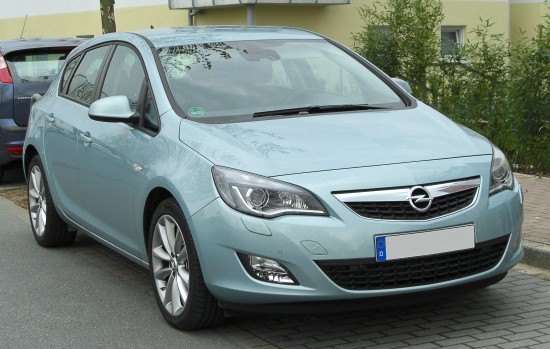European Chevrolet Production May Help Ease Opel Capacity Problem
With Opel’s fortunes in the toilet and Chevrolet vehilces gaining ground in Europe, Opel brass are looking at an obvious solution – stop building Chevrolet products in South Korea and start building them in Europe.
Opel CEO Karl-Friedrich Stracke told the New York Times that
The article touches on the many familiar Opel problems – the need to close factories, excessive capacity, staggering losses (Q1 2012 saw Opel lose $300 million), but the Chevrolet solution won’t be an umbrella cure of Opel’s ills. Building Cruzes and Sonics (or Aveos, as they’re known) in Europe brings to light whether the cost advantage of building in South Korea can be maintained.
Opel is also looking to export markets, like Latin America, Australia and the Middle East for growth, but given the popularity of brands like Chevrolet and Holden in those markets, is there room for yet another sort-of premium brand when established GM nameplates and more prestigious European marques are already fighting it out in their respective spheres?
If anything, the way out of this mess may be the PSA alliance. GM puts Russelsheim to use by twinning the Citroen C5 and Opel Insignia, while PSA uses their excess capacity at the Rennes plant (just like Opel, PSA’s unions fear the closure of the factory) to build the Zafira/Picasso/Peugeot MPV. Meanwhile, mum’s the word over at PSA headquarters. That would allow Astra production to be sent to a lower-cost facility in Poland, and England, where the Astra is a key product for Vauxhall.
More by Derek Kreindler


































Comments
Join the conversation
Now, don't get me wrong (copyright "The Pretenders"), I am pleased that GM are keeping Ellesmere Port open with the added bonus of extra work and production. But something doesn't make sense. Before this episode, GM and industry insiders agreed that Vauxhall/Opel needed to cut at least TWO plants in order to get anywhere near rightsizing the operation. By my reckoning, only Bochum is a casuality. Which means there's still one excess plant knocking around. Bringing in extra volume from other areas in the GM family does nothing more than shift the excess capacity issue somewhere else. You haven't really solved anything. What also hasn't been addressed is the fact that it is the South Koreans who will lose some of their production. Have you seen these guys strike when they've got a bee in their bonnet about something?! Makes the London riots look like a peaceful demonstration. They will cause GM headaches. So again, I ask my question, where is the second plant closing going to come from? The PSA-GM alliance won't solve the capacity issue because they are just shuffling production about between themselves ("You make this, we'll make that"). If GM needed something being made, they have more than enough capacity to cover it. So why involve PSA? They have their own problems in terms of capacity. They need to kill a couple of plants, themselves and asking a company, who have an underutilisation problem of their own, for more work doesn't make sense. Personally, I'm expecting problems in GM for a while. If the South Koreans don't pipe up about losing work, then the PSA-GM alliance will be recognised as an agreement which didn't really solve the most pressing issues. Either way, it's not good for Vauxhall/Opel. And when that happens, Europe's over-capacity issue will be solved. Very painfully...
Moving cheap junk production to high cost plants for political reasons; GM.
I would certainly not dispute your experience, but European car owners in the States have very different ones. Here, you buy Euro for style and performance and live with any other issues you encounter. Hondas and Toyotas used to get slammed by European media not for their quality, which was clearly superior, but for their dullness in character and in driving experience. And Euro manufacturers continue to use that as a selling point over their Asian rivals. However, I can see Europeans taking better care of their cars first because of the investment and second because of the rigid inspection requirements like the UK's MoT and France's controle technique. You don't see too many hoopties on the roads. But you'd have a hard time convincing most Americans that European cars are comparable in quality to the Japanese.